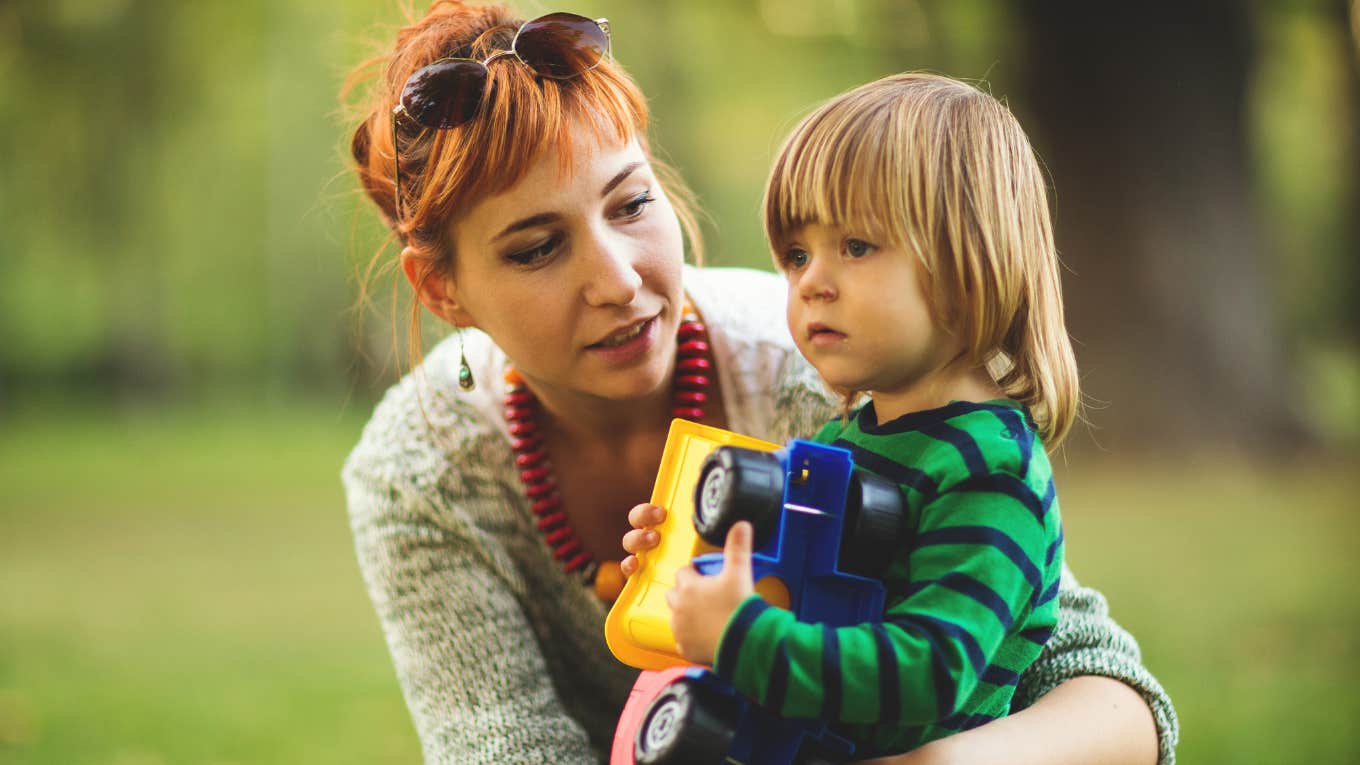Parents Who Raise Kids Without A Victim Mentality All Seem To Do These Same Things
The kids who grow up emotionally strong and self-accountable usually have parents doing a few quiet, powerful things behind the scenes.
 miodrag ignjatovic from Getty Images Signature | Canva Pro
miodrag ignjatovic from Getty Images Signature | Canva Pro Parents who raise kids without a victim mentality don’t usually talk about it online. They’re too busy actually parenting. But when you spend time around their kids, something stands out. These kids don’t spiral when life gets hard. They take responsibility, recover quickly, and figure things out. They’re not always cheerful, but they’re sturdy. There’s a different kind of emotional tone in their homes. It's less dramatics and more quiet strength.
These parents aren’t working from a manual. They’re making choices that add up to something strong. And while there’s no one way to do it, here are the things they tend to get right that create resilient kids.
They don’t rush in every time.
If their kid messes up, they don’t immediately jump into fix-it mode. There’s space for a pause. Space for the kid to feel the weight of their decision and think through what comes next. These parents believe their child can handle things, and that belief becomes a kind of backbone.
They take ownership of their own behavior.
These aren’t the parents who pretend they’re always right. When they lose patience or make a bad call, they say so. Without theatrics, without guilt trips. Just honesty. That alone teaches kids that being wrong isn’t something to fear. Mistakes are just something to face and learn from.
They listen first.
When their child says something hurtful happened, they don’t immediately assign blame. They ask what happened. They want the whole picture. They’re looking to understand instead of escalate. That models a different way of thinking that involves slowing down, gathering context, and then deciding how to respond.
They don’t over-correct the outside world.
If a teacher gives tough feedback or a coach is blunt, they don’t immediately frame it as mistreatment. Sometimes they’ll even agree with the critique. These kids learn that challenge isn’t cruelty. It’s part of growing up.
They let their kids feel things all the way through.
They don’t treat sadness or anger as something that has to be solved. If their kid is crying, they sit with them. If they’re frustrated, they give them space to figure it out. Emotional regulation comes from seeing that emotions are allowed, they just don’t run the show.
They’re consistent.
Their kids know what the boundaries are, and they don’t constantly shift based on how tired or guilty the parent feels. The behaviors of these parents are just plain reliable, no matter how rigid or not the rules are. That reliability creates calm. Kids who feel secure don’t need to act out to get clarity.
They talk to their kids like real people.
No sugarcoating, no babying. These parents say things their kids will actually remember later. Things like, “I know this is hard” or “You’re allowed to feel upset and still do the right thing.” It doesn't always look perfectly motivational, but it feels real. And that kind of honesty sticks longer than any lecture.
They stay calm in chaos.
They’ve learned not to make their child’s bad moment into their own crisis. When things go wrong they breathe before reacting. Their energy helps regulate the whole situation. The message their kid gets is that they can handle hard things without coming undone.
They live their own lives, not just through their kids.
There’s a quiet kind of damage that happens when a parent never follows their own dreams. Kids feel that weight, even if no one talks about it. The pressure to succeed, to behave, to be perfect doesn’t always come from rules. Sometimes it comes from a parent’s unresolved longing.
As Swiss psychiatrist Carl Jung once said, “The greatest burden a child must bear is the unlived life of the parents.” These parents understand that. They don’t put that burden on their kids. They try, even in small ways, to pursue what lights them up. Their kids grow up knowing they’re not here to fill a void. They’re here to become themselves. That kind of freedom changes everything.
They give space for mistakes.
Their kid doesn’t have to get it right the first time to be loved or respected. The parent might still be annoyed or even frustrated, but they don’t make mistakes feel like moral failure. They talk through it, adjust the plan, and move forward. That kind of safety makes it easier for a kid to grow.
They expect their kid to show up.
Even on hard days, even when it’s uncomfortable. These parents don’t set the bar low. They believe their kid can rise to the moment. That belief isn’t pressure. Instead the kid feels a profound sense of love. The kind that says, “I know you’ve got this, even if today doesn’t go well.”
They live the values they want their kids to absorb.
Their kids don’t just hear about resilience. They see it. When things are hard at work, in relationships, or at home, they watch their parent take a breath and keep moving. And that might be the most powerful message of all. You don’t have to be unshakable to be strong. You just have to keep showing up.
Micki Spollen is YourTango’s Editorial Director. Micki has her Bachelor’s Degree in Journalism & Media Studies from Rutgers University and over 10 years of experience as a writer and editor covering astrology, spirituality, and human interest topics.

